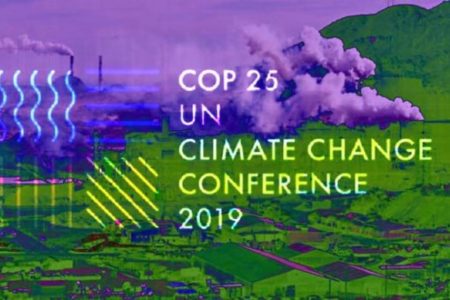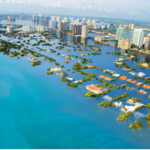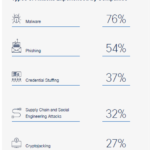December 26, 2019 – What would have been a nice stocking stuffer for the planet this Christmas? A real effort by the nations of the world who gathered in Madrid at COP 25 to implement policies to meet the Paris Climate Agreement of 2015. Always a flawed agreement right from the start, Paris’ commitments have turned out to be “nice to have,” rather than reality. The Madrid meeting pointed out what the real meaning of “non-binding” is when it comes to international agreements. No nation has to follow what was pledged or promised. The result has kicked the can down the road in trying to meet climate targets set in Paris.
António Guterres, the United Nations Secretary-General, described the results as a lost opportunity for financing, mitigating, and adapting the world to the ongoing climate crisis. There is little doubt now that a 1.5 Celsius temperature rise ceiling in the 21st century has gone by the wayside.
For pure effrontery and dissembling of the facts, a number of nations have stood out for their lack of concern for the entire planet’s future. In this basket of ne’er-do-wells are Australia, Brazil, Russia, Saudi Arabia, and the United States (federal government only).
The mechanism that Paris saw as the means to drive down carbon emissions, a global carbon market, got steamrolled by the United States. It makes you wonder why 197 countries back in 2015 signed any kind of deal without providing a means of implementing effective policies that could be measured, and policed by the United Nations and its members.
The carbon market mechanism has been a disaster from the get-go. There are old carbon credits and new proposed carbon credits. There appears to be no mechanism for carrying over credits from the past. Countries that had the most to lose because of their dependence on exploring and mining of fossil fuels found ways of making the trading and valuation of carbon credits indecipherable. These credits date back to the Kyoto Accord and giving them a continued valuation seems to have become a roadblock for moving forward on using carbon markets to drive down emissions.
Meanwhile, the Earth doesn’t seem to be waiting for political leaders to catch up with scientific reality. We are seeing data from Greenland and Antarctica that tells us the atmospheric buildup of carbon is causing unprecedented ice sheet melts. Arctic permafrost is thawing at an accelerated rate releasing carbon dioxide (CO2) and methane (CH4) at increasing volumes with these added gases accelerating overall warming. Sea ice levels in the Arctic continue to trend downward. Australian bushfires and temperatures have reached record highs. Megadrought is becoming highly likely both in central Australia as well as in southern Africa.
The indirect involvement of humans in what is described above in the previous paragraph is accompanied by our direct involvement in deforestation in places like the Amazon basin where we are negatively impacting the tropical rainforests of the Earth and the role they play as carbon sinks, oxygen generators, and atmospheric flow.
We are seeing atmospheric CO2 at a level not seen in four million years during the Pliocene when global mean temperatures were much higher than 1.5 Celsius above our pre-Industrial Revolution past. It is likely that CO2 levels will accelerate with permafrost melt pushing us well beyond 3 or 4 Celsius above current mean temperatures by century end.
Are our governments preparing for the disruption atmospheric warming will bring? Not even close to getting started. Even if we can reduce carbon emissions to net-zero by mid-century (which means we will produce no more carbon than we capture by natural or other means) the effect of what we have already done will continue to be felt for centuries into the future.
No governments that I know of in the Madrid talks proposed a negative-emissions scenario with policies and processes in place to achieve such an outcome. Other than those who posit a geoengineering solution as a way to save civilization as we know it, there seems to be a lack of international will or cooperation in stabilizing the planet’s climate.
In 2020, the nations of the Paris Climate Agreement will meet again at COP 26 in Glasgow, Scotland. Will the leaders have a sense of urgency as they go about creating a future sustainable economic model that is consistent with managing the climate? Although net-zero would be nice, it no longer should be the goal. We now need a negative-zero plan and we need it fast.
The appointment of Mark Carney by the United Nations as special envoy for climate could be the spark that drives a new sense of purpose for the 197 nations of the Paris Agreement. Carney as the former Governor of the Bank of Canada, and then the Bank of England, brings his financial acumen and his understanding of risk, of which he has spoken many times, to reconciling business, government, and the climate crisis. In accepting the United Nations job, Carney stated that his new position “provides a platform to bring the risks from climate change and the opportunities from the transition to a net-zero economy into the heart of financial decision-making.” He went further, “The disclosures of climate risk must be comprehensive, climate risk management must be transformed, and investing for a net-zero world must go mainstream.”
Carney’s appointment may be the best stocking stuffer this Christmas 2019.
















